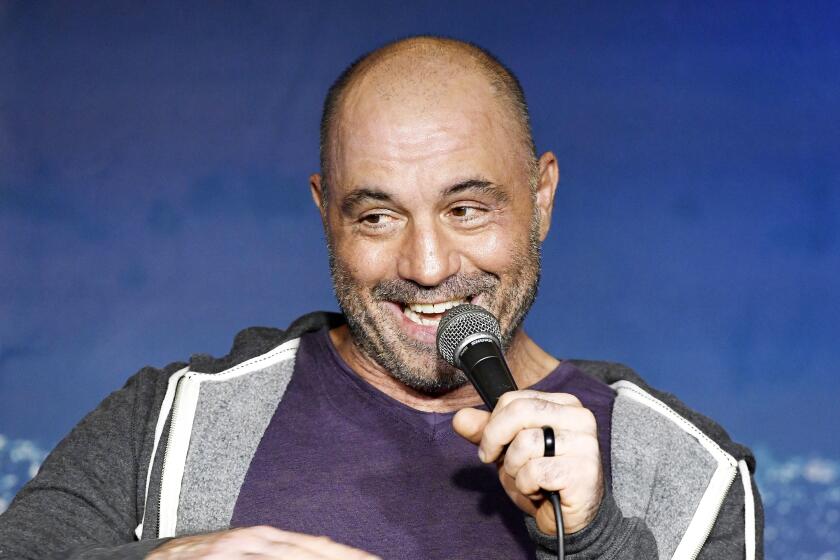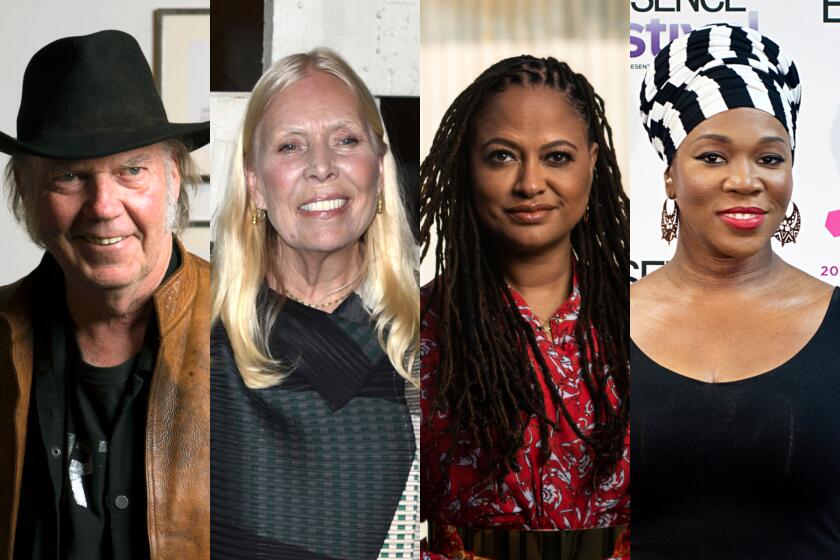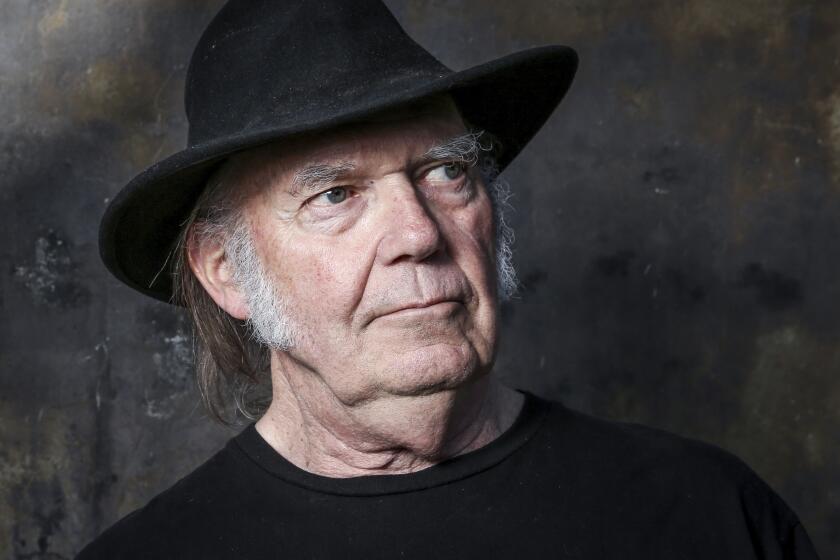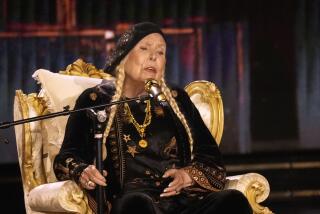Crosby and Stills join Nash and Young in growing Spotify boycott over Joe Rogan
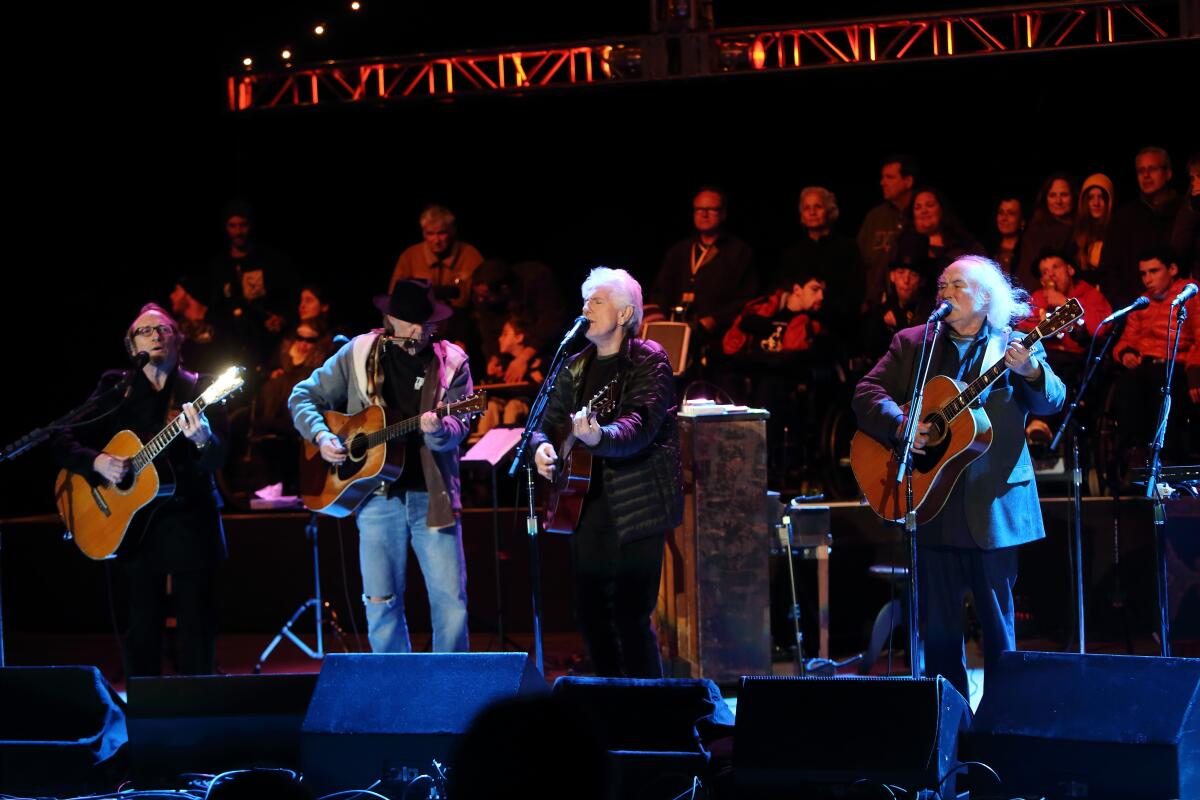
Crosby, Stills, Nash & Young are getting the band back together to boycott Spotify.
On Wednesday, David Crosby, Stephen Stills and Graham Nash announced plans to “remove their collective recordings from Spotify” in solidarity with their bandmate Neil Young, who took a stand against the streaming giant last month. Nash individually renounced the platform earlier this week.
The musicians vowed to yank tracks recorded by various iterations of the group — including songs by Crosby, Stills, Nash & Young; Crosby, Stills & Nash; and Crosby & Nash — from the platform. Much of Young’s individual library is already gone from Spotify, while the rest of his band members are in the process of removing their solo work as well.
So far, the response to Neil Young’s call to pull music from Spotify has been largely muted among recording artists.
Like Young, the remaining members of the folk rock group cited “dangerous disinformation being aired on Spotify’s Joe Rogan podcast” as justification for ditching the streamer. Rogan has drawn criticism from the medical community for fueling conspiracy theories about COVID-19 treatments and vaccines on “The Joe Rogan Experience.”
“While we always value alternate points of view, knowingly spreading disinformation during this global pandemic has deadly consequences,” Crosby, Stills and Nash said in a joint statement.
“Until real action is taken to show that a concern for humanity must be balanced with commerce, we don’t want our music — or the music we made together — to be on the same platform.”
Ava DuVernay, Joni Mitchell and India Arie have abandoned Spotify in the wake of Neil Young’s protest against the streaming platform and podcast host Joe Rogan.
On Jan. 26, Young became the first of several entertainment figures to pull his content from Spotify in opposition to the audio service’s ongoing support of Rogan. Other artists who soon followed suit include Joni Mitchell, Nils Lofgren, India Arie and, of course, Nash.
“There is a difference between being open to varying viewpoints on a matter and knowingly spreading false information which some 270 medical professionals have derided as not only false but dangerous,” Nash said Tuesday.
“Likewise, there is a difference between misinformation, in which one is unaware that what is being said is false, versus disinformation which is knowingly false and intended to mislead and sway public opinion. The opinions publicized by Rogan are so dishonest and unsupported by solid facts that Spotify becomes an enabler in a way that costs people their lives,” he continued.
Spotify isn’t new to controversy. Here’s a rundown of the music streamer’s history of feuds with artists and songwriters over royalties, privacy and more.
In response to Young’s crusade, Rogan promised Sunday to “try to balance out these more controversial viewpoints with other people’s perspectives, so we can maybe find a better point of view.”
Spotify CEO Daniel Ek acknowledged the company’s “obligation to do more to provide balance and access to widely accepted information from the medical and scientific communities” but took no action against Rogan.
More to Read
The biggest entertainment stories
Get our big stories about Hollywood, film, television, music, arts, culture and more right in your inbox as soon as they publish.
You may occasionally receive promotional content from the Los Angeles Times.
